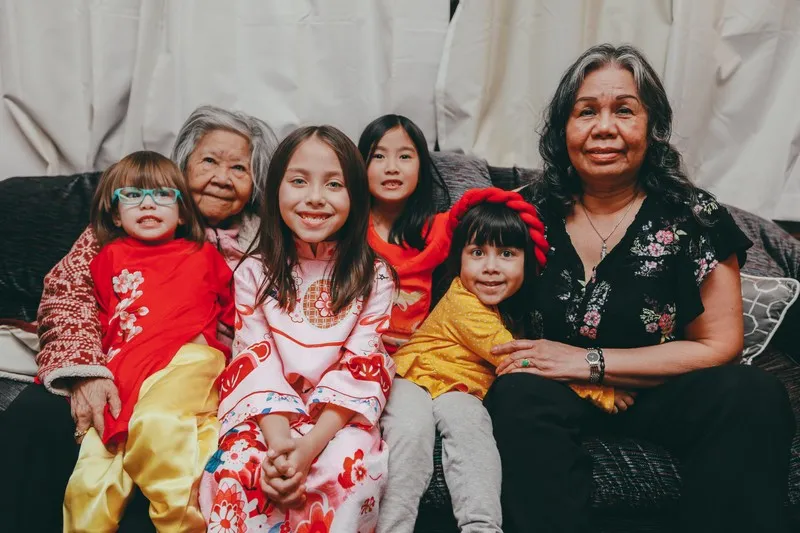Table of Contents
- Historical Context of Extended Families
- Functions of Extended Families
- Variations in Extended Family Structures
- Contemporary Challenges and Transformations
- The Future of Extended Families
The concept of the extended family is a fundamental aspect of sociological study, reflecting diverse social structures and cultural traditions. Unlike the nuclear family, which consists of parents and their children, the extended family includes additional relatives such as grandparents, aunts, uncles, and cousins. This broader familial network provides a unique lens through which to examine social relationships, support systems, and the transmission of cultural norms and values.
Historical Context of Extended Families
Extended families have been a cornerstone of human societies for millennia. In pre-industrial societies, the extended family was often the primary social unit, crucial for survival and economic stability. These families engaged in collective labor, pooling resources to meet communal needs. The agrarian lifestyle necessitated large family units to manage farms and domestic responsibilities. Additionally, the extended family functioned as a social safety net, caring for the elderly, the sick, and children.
With the advent of industrialization, the structure of families began to shift. The nuclear family became more prevalent, particularly in Western societies, due to urbanization and the demands of industrial labor. Despite this shift, extended families continued to play significant roles, especially in rural areas and non-Western cultures. Understanding this historical evolution helps contextualize contemporary family dynamics and the persistent importance of extended kin networks.
Functions of Extended Families
Social Support and Care
One of the primary functions of the extended family is to provide social support and care. Extended family members often share responsibilities in raising children, offering guidance, and providing emotional support. This support network is crucial in times of crisis, such as illness, unemployment, or the death of a family member. Grandparents, in particular, often play a vital role in caregiving, allowing parents to balance work and family responsibilities more effectively.
Extended families also contribute to the socialization of children, transmitting cultural traditions, values, and norms. Through interactions with a diverse group of relatives, children learn about their heritage and develop a sense of identity and belonging. This intergenerational transmission of knowledge and culture is essential for the continuity of societal values and practices.
Economic Cooperation
Extended families often engage in economic cooperation, pooling resources to achieve financial stability and success. This collective approach can provide a buffer against economic hardships, such as job loss or unexpected expenses. In many cultures, extended family members contribute to household income through various means, including sharing living expenses, providing childcare, or participating in family-owned businesses.
This economic cooperation extends to larger community networks, where extended families can leverage their connections to secure employment opportunities, negotiate better deals, or access resources. The economic interdependence of extended family members reinforces social bonds and ensures that individuals have a reliable support system in place.
Social and Cultural Continuity
Extended families play a crucial role in maintaining social and cultural continuity. They serve as custodians of family history, traditions, and customs, passing these down through generations. Family gatherings, celebrations, and rituals provide opportunities for reinforcing these cultural ties and strengthening familial bonds. In many societies, extended families are also responsible for arranging marriages, thereby ensuring the continuation of social and cultural practices.
By preserving and transmitting cultural heritage, extended families contribute to the stability and cohesion of communities. They help individuals maintain a connection to their roots, fostering a sense of pride and belonging. This cultural continuity is particularly important in the context of globalization, where rapid social changes can threaten traditional practices and identities.
Variations in Extended Family Structures
Geographical Differences
The structure and significance of extended families vary widely across different geographical regions. In many African, Asian, and Latin American cultures, extended families are integral to social organization and daily life. These societies often emphasize collectivism and interdependence, valuing the extended family as a source of support and identity.
In contrast, Western societies, particularly in Europe and North America, tend to prioritize nuclear families and individualism. However, even in these regions, extended families remain important, especially among immigrant communities and in rural areas. The geographical context influences the roles and functions of extended families, reflecting broader cultural values and social norms.
Urban vs. Rural Settings
The dynamics of extended families also differ between urban and rural settings. In rural areas, extended families are more likely to live in close proximity, facilitating frequent interactions and shared responsibilities. The agrarian lifestyle often necessitates collaborative efforts, reinforcing the importance of extended family networks.
In urban areas, extended families may be more dispersed, with members living in different neighborhoods or cities. Despite physical distance, technological advancements such as telecommunication and social media enable extended families to maintain connections and provide support. Urbanization has also led to new forms of extended family interactions, such as virtual gatherings and online support groups.
Socioeconomic Factors
Get the full article AD FREE. Join now for full access to all premium articles.
View Plans & Subscribe Already a member? Log in.





